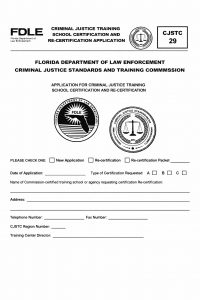In today’s digital world, many traditional in-person processes are moving online including notarization. As remote work becomes the norm, people frequently ask: “Is it legal to notarize documents over Zoom?” The answer is yes, but with important state-specific qualifications.
What is Remote Online Notarization?
Remote online notarization (RON) allows a notary public to verify a signer’s identity and witness document signings through audio-visual technology instead of in person. Signers can complete the notarization process from anywhere using a device with a camera and microphone.
RON isn’t simply using Zoom or any video conferencing platform to conduct a notarization. It requires specialized platforms designed for secure remote notarization. These platforms include identity verification tools, secure document handling, electronic signature capabilities, digital notary seals, session recording, and audit trails.
The Legal Status of Remote Online Notarization
The legality of remote online notarization varies significantly by state:
States Where RON is Legal
As of May 2025, most U.S. states have enacted permanent laws allowing for some form of remote online notarization. States like Virginia (the first state to legalize RON in 2012), Florida, Texas, Nevada, and Minnesota have established comprehensive frameworks.
Each state has its own specific requirements. These include which documents can be notarized remotely, what identity verification methods must be used, where the notary and signer must be located during the session, what platforms are approved, and how long recordings must be retained.
Federal Recognition
While notary laws are primarily governed at the state level, the federal government has proposed legislation to establish minimum standards for RON across all states through the Securing and Enabling Commerce Using Remote and Electronic (SECURE) Notarization Act.

How Does Remote Online Notarization Work?
The remote notarization process includes several key steps:
1. Preparation and Identity Verification
Both parties prepare by ensuring documents are complete and gathering necessary identification. When the session begins, the notary verifies the signer’s identity through:
- Visual comparison of the signer’s face with their ID
- Knowledge-based authentication questions
- Credential analysis of the ID document
- Sometimes, biometric verification like facial recognition
2. The Notarial Act and Documentation
After verifying identity, the notary witnesses the electronic signature, confirms the signer’s understanding and willingness, applies their electronic notary seal, and records details in an electronic journal. The entire session is recorded and stored securely for several years, as required by state law.
Get Online Notray for Your Security Needs
Benefits of Online Notarization
Remote notarization offers several advantages over traditional methods:
Convenience and Accessibility
Remote notarization is available 24/7, eliminating scheduling constraints. It’s accessible to people in rural areas without nearby notaries and those with mobility issues. This service is particularly valuable during emergencies or health crises when in-person meetings may be impossible.
Efficiency and Security
The remote process eliminates travel time while reducing paperwork. Users gain immediate access to notarized documents, and the system often provides enhanced security through rigorous identity verification and a permanent audio-visual record of the transaction.

Limitations and Challenges
Despite its benefits, remote notarization has some limitations:
Not Universally Accepted
Not all states have adopted RON, and those that have may have different requirements. Some document types may be explicitly excluded from remote notarization in certain jurisdictions, including wills and trusts in some states, certain court documents, and some real estate transactions.
Technology Requirements
Both signers and notaries need adequate technology to complete the process, including reliable high-speed internet and devices with functioning cameras and microphones.
How to Get Documents Notarized Remotely
If you need remote notarization, follow these steps:
- Verify whether RON is legal in your state for your document type
- Choose an approved RON service provider
- Prepare your documents and valid government-issued photo ID
- Complete the notarization following the notary’s instructions
The Future of Remote Notarization
The landscape of online notarization continues to evolve. Emerging technologies like blockchain, artificial intelligence, and biometric authentication are enhancing security and efficiency. As remote notarization becomes more common, we can expect greater standardization across jurisdictions and potential federal legislation establishing minimum standards.
Conclusion
Remote online notarization offers a convenient, secure alternative to traditional in-person notarization. While not universally available for all document types or locations, the trend is moving toward greater acceptance. Before proceeding, always verify the legality in your jurisdiction and choose a reputable RON service provider to ensure your remotely notarized documents will be legally valid.
Disclaimer: This article provides general information about remote online notarization. Laws vary by state and change over time. For specific legal advice, consult with a qualified attorney or your state’s notary regulating authority









